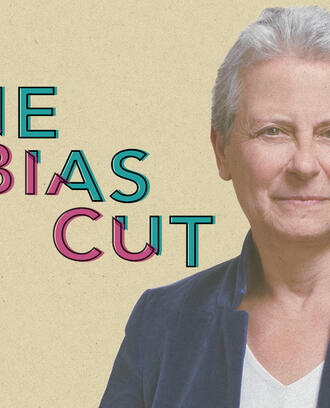Design: Stephen Sauer / Art: iStock
Ideas Made to Matter
Career
Navigating the 3 stages of your career with intention
By
Chi-Won Yoon
Chi-Won Yoon is that rare thing, a financier willing to play a long game.
He spent 22 years at UBS AG, ultimately serving as Asia Pacific president overseeing 13 countries and nearly 8,000 employees. Before that, Yoon honed his skills in program trading and index arbitrage on Wall Street, working at SBC Warburg, Lehman Brothers, and Merrill Lynch.
Through it all, he took the long-term view.
“Many people in this industry go in with a short-term objective of maximizing either pay or promotions, but I solved for long-term learning,” said Yoon, who spoke recently to MBA and masters of finance candidates at MIT Sloan. “I tried to build long-term competitiveness into my career. And, for me at least, that strategy worked.”
Asked whether one career track is better than another — pursuing a role in senior management track versus developing expertise in analytics, for example — Yoon said, “I don't necessarily think that any one background is more or less helpful, but I do think the skill sets you need to have are different depending on the various stages of your career.” Specifically, those stages and skills are:
First roles
“In the beginning, you’ll see those people who make short-term decisions progress faster — they’ll get paid more, they’ll get promoted faster,” Yoon said. “But for me, it was much more about having a 10- or 20-year view about my career, and systematically learning the skill sets that I needed to learn, and building a broad repertoire over time.
"The first five-to-10 years of your career are all about being excellent at what you do,” he said. “If you're a trader, a derivatives structurer, a salesperson, just be the best that you can be in that field.”
Professionals on the lower rungs of their career ladder should pay close attention to leaders in their organizations. “Watch those people above you who are successful. Keep an eye open, monitor what they do, learn from them, and at times, emulate what they do,” Yoon said.
This is also a time to develop soft skills, specifically what MIT Sloan senior lecturer Daena Giardella calls “improvisational leadership” — that is, “skills that help us deal with the unexpected and the unknown, and how to be responsive and effective in moments of uncertainty.”
While it may seem intuitive for professionals to hone their improvisational leadership skills at the time they begin managing people and teams, the best time is at “every stage of the process,” Giardella said.
“You're going to be dealing with the unexpected at all three of those major stages. The curveballs might get bigger, the stakes might be larger, you might be dealing with much bigger budgets, and you need to be able to handle that.” The best way is to practice improvisational skills at the outset of your career, and build “muscle memory” as you rise, Giardella advised.
Managing director
At this stage, being good at what you do is not enough, said Yoon. “What's more important is the ability to help people around you become successful. You measure your own success through the success of others,” he said.
Yoon’s secret to that success: empathy. “During my management career, trying to put myself in somebody else's shoes and understand their viewpoints was a very important skill set that came in very handy,” Yoon said.
Further reading: 5 qualities of top banking and finance leaders
That observation dovetails with what Cassandra Frangos, a former head of global executive talent practice at Cisco, teaches in her MIT Sloan Executive Education course, Strategies for Career Development: Charting a Path to the C-Suite. Successful managers are aware of their own strengths and weaknesses and hire and cultivate their teams accordingly, Frangos said. “What is the team you need to put around you?” she said. “If you’re a great strategist but not the best operator, then make sure you’ve got a great operator on your team.”
Beyond that, mid-level executives should be open to lateral moves and willing to reconsider their timeline. Setting strict deadlines — like “I’ve got to be CEO by the time I’m 50” — is a mistake aspiring leaders make as they try to reach the top. “Chart your own path,” she said. “Think about what’s going to be best for you. Because the answer is different for everyone.”
C-suite executive
For someone committed to a slow rise, Yoon eventually did make it to the top — and stayed there. “My career progression may have looked fairly slow at the start, but actually towards the latter part, there was exponential growth,” he said, referring to his later years at UBS, when he moved rapidly from head of Asia equities to head of Asia Pacific equities and fixed income, currencies, and commodities to president of Asia Pacific.
As a CEO, Yoon said he needed to learn to “float above the details and see the big picture” — a skill he calls “situational awareness, being able to take decisive action during tumultuous times,” he said.
But C-suite executives also need “the ability to zoom in and go very deep if you have to,” Yoon said. If you see warning signs that something isn’t right in a particular business area, you need to be able to dive deep, understand the details, talk to people far down the organization and take decisive action, Yoon said. “It’s that perspective and wisdom of knowing when to look at the big picture and when to zoom in that’s crucial.”



